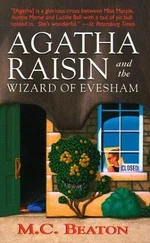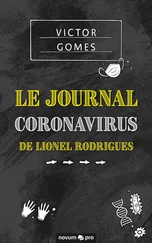Rodrigues Ottolengui - A Modern Wizard
Здесь есть возможность читать онлайн «Rodrigues Ottolengui - A Modern Wizard» — ознакомительный отрывок электронной книги совершенно бесплатно, а после прочтения отрывка купить полную версию. В некоторых случаях можно слушать аудио, скачать через торрент в формате fb2 и присутствует краткое содержание. Жанр: Классический детектив, foreign_detective, foreign_prose, на английском языке. Описание произведения, (предисловие) а так же отзывы посетителей доступны на портале библиотеки ЛибКат.
- Название:A Modern Wizard
- Автор:
- Жанр:
- Год:неизвестен
- ISBN:нет данных
- Рейтинг книги:3 / 5. Голосов: 1
-
Избранное:Добавить в избранное
- Отзывы:
-
Ваша оценка:
- 60
- 1
- 2
- 3
- 4
- 5
A Modern Wizard: краткое содержание, описание и аннотация
Предлагаем к чтению аннотацию, описание, краткое содержание или предисловие (зависит от того, что написал сам автор книги «A Modern Wizard»). Если вы не нашли необходимую информацию о книге — напишите в комментариях, мы постараемся отыскать её.
A Modern Wizard — читать онлайн ознакомительный отрывок
Ниже представлен текст книги, разбитый по страницам. Система сохранения места последней прочитанной страницы, позволяет с удобством читать онлайн бесплатно книгу «A Modern Wizard», без необходимости каждый раз заново искать на чём Вы остановились. Поставьте закладку, и сможете в любой момент перейти на страницу, на которой закончили чтение.
Интервал:
Закладка:
He opened the iron door, lifted the body of the sleeper in his arms and bore it into the passage at the foot of the stairs. Immediately opposite, there was another door, dimly shown by the light from the swinging lamp. This he kicked open with his foot, without dropping his burden. He walked straight across, through the darkness of this old wine cellar, towards a dim ray of light which penetrated at the opposite end, presently coming to a low arch through which he passed with lowered head, emerging into a greater light. They were now in an old cistern, and a circular opening above permitted the moonlight to enter. Here the Doctor laid the sleeper gently down, and retraced his steps. Re-entering the domed chamber, he extinguished the lamp, and then again emerged, closing the door behind him. From a corner under the stairway he procured a long-handled, heavy, iron hammer, such as men use who break large rocks. He next went into the wine cellar, closing the door behind him, and thence passed on through the archway into the cistern. Taking one glance at the still sleeping form of Jack Barnes, he threw off his coat, and attacked the brick-work of the arch, raining upon it heavy blows, each of which demolished a part of the thick wall. At the end of half an hour the opening was choked with fallen debris, and the entrance into the wine vault thus effectually concealed.
This task accomplished, the Doctor resumed his coat, and turned to examine the sleeper. He raised him up, and stood him against that side of the wall upon which the most light was shed. As the body was thus supported, the head hanging, and the weird half-light making the face more ghastly, one might readily have supposed that this was a corpse. But the Doctor presently cried out:
"Awaken! Awaken! not entirely, but so that you may hear and speak!"
In an instant the head was lifted, the eyes opened, and the voice said:
"I am awake! I can hear and speak!"
"Good!" exclaimed the Doctor. "Tell me, what do you remember?"
"You commanded me to remember nothing!"
"True! I commanded! But do you remember?"
"You are the master! I have forgotten!"
"I am the master. Now I tell you to remember!"
"It is impossible! I cannot remember what I have forgotten, unless you tell it to me again!"
"Very true. I will tell you what you have forgotten, and you will then remember it. You will remember even after you are awakened!"
"I will obey. I will remember what you tell me!"
"You left your office this afternoon to follow Dr. Medjora?"
"Yes! I followed Dr. Medjora!"
"He took a car, and you took another?"
"He took a car, and I took another!"
"He left the car, and you followed him to a house and saw him enter?"
"I saw him enter a house!"
"Then there was a fire and you watched the house burning?"
"I saw the house burning!"
"Then you rushed forward and fell into this well?"
"I rushed forward and fell into the well!"
"You will remember all this?"
"Yes, I will remember!"
"Everything else you have forgotten? Nothing else occurred?"
"Nothing else occurred!"
"Now sleep!" The Doctor passed his hands over the eyes and the deep sleep was resumed. The Doctor pressed his lips near the sleeper's ears, and said:
"You will awaken completely in two hours, climb out of this place, and return to your home!"
To this there was no reply, but the Doctor had no doubt that the injunction would be followed. He laid Barnes down upon the bottom of the cistern so that his opening eyes would gaze directly at the orifice above, and then, climbing upon a lot of loose rubbish, he easily reached the edge of the hole, and clutching it with his strong hands drew himself out.
Exactly two hours later, Barnes opened his eyes and slowly awakened to a sense of stiffness and pain in his limbs. He staggered up, and soon was sufficiently aroused to see that he must climb out of the place where he was. This he did with some difficulty, and after wandering about for nearly an hour he found his way to the bridge and crossed the river. Thence he went home, threw himself on his bed, and was soon wrapped in deep, but natural slumber.
In the morning he wondered why he had slept in his clothing. His head ached, and his limbs felt bruised. Slowly he seemed to recall his following Dr. Medjora, his tracking him across the bridge, the house afire, and his tumble into a well, from which he had climbed out late at night. In fact nothing remained in his recollection except what had been suggested by Dr. Medjora whilst he had been hypnotized. Still in a vague way he half doubted, until at breakfast he found seeming corroboration in the newspaper account, which told that the suspected man had been burned to death. How could he reject so good an authority as his morning paper?
CHAPTER IV.
DR. MEDJORA SURRENDERS
Madam Cora Corona watched the destruction of the old mansion in which she had last seen her lover, with mingled feelings of horror and of hope. At one moment it seems impossible that the Doctor could find a means of escaping from the flames, whilst at the next she could but remember the manner of man that he was, and that having told her of his intention to surrender to the police, he would scarcely have chosen so horrible a death whilst immediate safety was attainable by simply opening the door of the passageway before the flames enveloped the whole building. Besides, how did the fire occur? He must have started it himself, and, if so, with what object, except to cover up his escape? But love, such as she bore this man, could never be entirely free from its anxiety, until the most probable reasoning should become assured facts. So, with a dull pain of dread gnawing at her heart, she drove her horses home, holding the reins herself, and lashing the animals into a swift gait, which made their chains clank as they strained every nerve to obey their mistress's behest.
Reaching her sumptuous home on Madison Avenue, she hurried to her own room, passing servants, who moved out of her way awed by her appearance, for those who dwelt with her had learned to recognize the signs which portended storm, and were wise enough to avoid the violence of her anger.
Tossing aside her bonnet and mantle, regardless of where they fell, Madam Corona dropped into a large, well-cushioned arm-chair, and gazed into vacancy, with a hopeless despair depicted on her features. The death of Dr. Medjora would mean much to this woman, and as the minutes sped by, the conviction that he must have perished, slowly burned itself into her brain.
She was the widow of a wealthy Central American. Her husband had been shot as a traitor, having been captured in one of those ever-recurring revolutions, whose leaders are killed if defeated, but made governors if they succeed; rulers until such time when another revolutionary party may become strong enough to depose the last victors. Thus the chance of a battle makes men heroes, or criminals.
She had never loved her husband, and, with a sensual, passionate temperament, which had never been satisfied by her marriage, she welcomed her freedom and her husband's wealth as a possible step towards that love for which she longed. Exiled from her own country, because of the politics of her dead husband, she had come to the United States, the home of all aliens. Her estates had not been confiscated, for fear that the fires of the revolution, smothered but not quenched, might have been again stirred by a seeming warring against the woman. But the President had said to his council:
"Madam Corona is too rich, and she talks too much." So the hint had been given to her to depart, and she had acquiesced, glad enough to retain her fortune.
In New York she had been welcomed amidst the Spanish-Americans, and with a different temperament might readily have endeared to herself a host of true friends. But her selfish desire for a despotic sway over all who came near, and her extreme jealousy of attentions to others, imbued those who made her acquaintance with an aversion which was scarcely concealed by the thin veneer of the polite formalities of social life. So she knew that in the new, as in the old home, she had no friends.
Читать дальшеИнтервал:
Закладка:
Похожие книги на «A Modern Wizard»
Представляем Вашему вниманию похожие книги на «A Modern Wizard» списком для выбора. Мы отобрали схожую по названию и смыслу литературу в надежде предоставить читателям больше вариантов отыскать новые, интересные, ещё непрочитанные произведения.
Обсуждение, отзывы о книге «A Modern Wizard» и просто собственные мнения читателей. Оставьте ваши комментарии, напишите, что Вы думаете о произведении, его смысле или главных героях. Укажите что конкретно понравилось, а что нет, и почему Вы так считаете.












